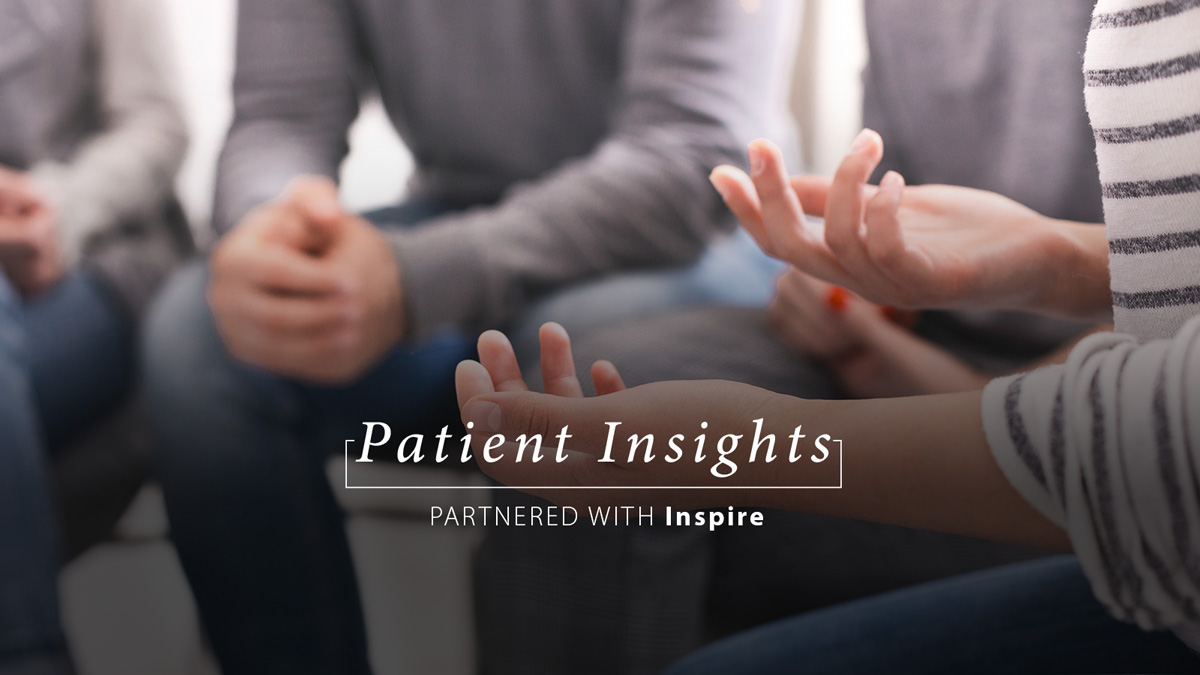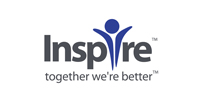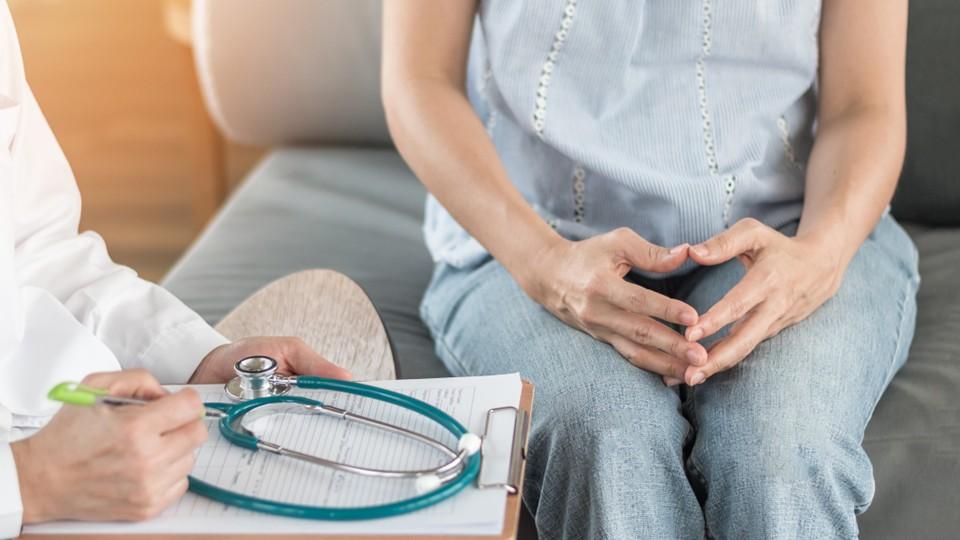Giving patients a sense of belonging

Clinical research professional and patient advocate Kristina Wolfe tells us how pharma can collaborate better with patients and give them a place in the healthcare conversation.
The pharma industry has known for a long time that collaboration is key to meaningful engagement with patients, but it still doesn’t come easily for companies, says Kristina Wolfe.
“When you put yourself in the patient's shoes, it’s easy to see the importance of collaboration,” she says. “For example, for cancer treatment, even in the terminal stages, the palliative care physician has to work with the oncologist and hospice to provide a cohesive approach to care. Collaboration is key when it comes to the patient, but we are not steering that very well as an industry, at all.”
“A lot of us who have chronic diseases have felt different from the rest of the world for a big portion of our lives. Feeling at ease when sharing our experiences is huge”
Greater collaboration can also provide a sense of belonging to patients, which Wolfe says is hugely important.
“A lot of us who have chronic diseases have felt different from the rest of the world for a big portion of our lives,” she says. “Belonging and feeling at ease when sharing our experiences with other people, without fear of judgment is huge. Being praised or awarded for sharing our insights as experts is also huge.”
Wolfe was diagnosed with type 1 diabetes when she was six years old. This is what motivated her to pursue a career in clinical research, and through this she eventually became a patient advocate.
“As a patient that was potentially qualified for one of the trials I was managing, I decided to go to screen for a similar one and found out that the sites weren’t educated enough on the protocol to really be effective, especially from a patient perspective.”
She adds: “I've seen trials fail to recruit as effectively as they could because they've not had any input on the protocol from patients. They have involved key opinion leaders in those discussions but not patients.”
Wolfe now works for the Seeker Health and Patient Experience Project division of Eversana, helping steer the business and build it, collaboratively, with patients in mind. She took this role shortly after co-founding and launching, with partner Seth Rotberg, non-profit patient advocacy organisation, Our Odyssey, where their mission is to connect young adults impacted by a rare or chronic condition with social and emotional support in the hope of improving their quality of life.
Generally speaking, Wolfe says she sees some positive moves towards collaboration within the industry, but there is still a long way to go.
“Patients are getting a lot more involved from an industry perspective. There is a lot more talk about it. But many of the smaller companies say they don't necessarily have the bandwidth or the budget to get patients involved in this way. We really need to take steps to improve that.”
And Wolfe stresses that this is eminently possible, even with tight budgets – for example, she notes that companies focused on rare diseases are much more likely to engage patients regardless of their size.
“However, even companies targeting non-rare diseases can have a focus on the patient and get those populations involved in these discussions sooner.”
She says there are plenty of ways that companies with lower budgets can easily engage with patients – especially through social media and collaboration with patient advocacy organisations like Our Odyssey.
“I think a lot of us have to hack the way that we treat and manage our disease and we rely on other patients in order to teach us how to do those things. That's become easier over the years as social media has increased in popularity and accessibility has gotten easier. It can’t end here, however.
”I’ve had many hallway conversations with clinical development professionals over the years. I’ve also had many approach me for feedback through social media, which has proven useful from an opportunity perspective. Something to consider for pharma is to ally with their young employees and/or patients to start these conversations externally – they likely already do this on their own, anyway! This could empower the newer generation.”
She adds: “Often people in the pharmaceutical industry are afraid to reach out and connect, but it can be very empowering for a patient if you can sit down and have a conversation with them. That can even turn into a contract and or job opportunities for the patient. Once those initial conversations happen, usually those patients are then able to engage with and educate others from their own communities and further empower these people – this is another thing that Our Odyssey aims to steward a platform for.”
Allowing patients to serve as an extension of the company’s own team, for example via blogging, is an easy way for smaller companies with lower budgets to drive patient engagement, Wolfe says.
“Giving them those opportunities not only empowers them, it can enhance the integrity of your clinical development work.”
Global collaboration
But Wolfe stresses that collaboration needs to go beyond more simple forms of engagement such as those over social media.
“The global healthcare system is very complex, and collaboration is necessary from the government, payers, providers, pharma and health systems to really make a cohesive team for better outcomes for patients.”
She says the solution could be to invest in infrastructures that allow for this type of collaboration.
“It could mean involving government affairs specialists in conversations, as well actually standardising regular involvement of patients in discussions that happen around corporate and government policy, and different clinical development strategies.”
She points to the US’ Clinical Trials Transformation Initiative (CTTI), which is aiming to develop a more patient-centered and efficient clinical trial system, as a good example of an initiative that has involved a lot of collaboration.
“They've involved stakeholders from a lot of large pharma organisations, who are participating on a volunteer basis. That’s a great way to get around corporate firewalls, which often impede collaboration, and put new infrastructure in place.
“If we can take models like this and apply them across Europe and other countries to make it a more global approach, we could really have a good foundation on which to build collaboration.”
Wolfe adds that opening seats up on initiatives like this for as many stakeholders as possible – including patients – will help facilitate more new models for collaboration.
“It's a two-way street,” she says. “The earlier we can engage with the patient, the more empowered those communities are going to feel, and the more information and insight we will all have to better develop solutions that benefit us all. It's not a novel concept. It's really all about relationships, another reason Our Odyssey was born.
“If we can take the ROI and results oriented thinking out of the first step of every strategic decision, and if we actually follow the science and pursue the patient first, we've got nothing else to worry about – the ROI is going to come.”
About the interviewee
 Kristina is a hopeful storyteller, type 1 diabetes (T1D) patient, advocate and motivated young healthcare professional with enthusiasm to connect people and create things that make the world a better place. She began her career in clinical research operations before moving into business development, where she’s thrived by developing opportunities to innovate within clinical trials by raising patient voices to drive messaging with biopharma companies and investigators.
Kristina is a hopeful storyteller, type 1 diabetes (T1D) patient, advocate and motivated young healthcare professional with enthusiasm to connect people and create things that make the world a better place. She began her career in clinical research operations before moving into business development, where she’s thrived by developing opportunities to innovate within clinical trials by raising patient voices to drive messaging with biopharma companies and investigators.
Find Our Odyssey on Instagram & Twitter @_OurOdyssey_
And find her on Twitter at @tunaturns.
 Patient Insights is a monthly series that appears in partnership with Inspire, a company with an online support community of more than 1.5 million patients and caregivers worldwide.
Patient Insights is a monthly series that appears in partnership with Inspire, a company with an online support community of more than 1.5 million patients and caregivers worldwide.











